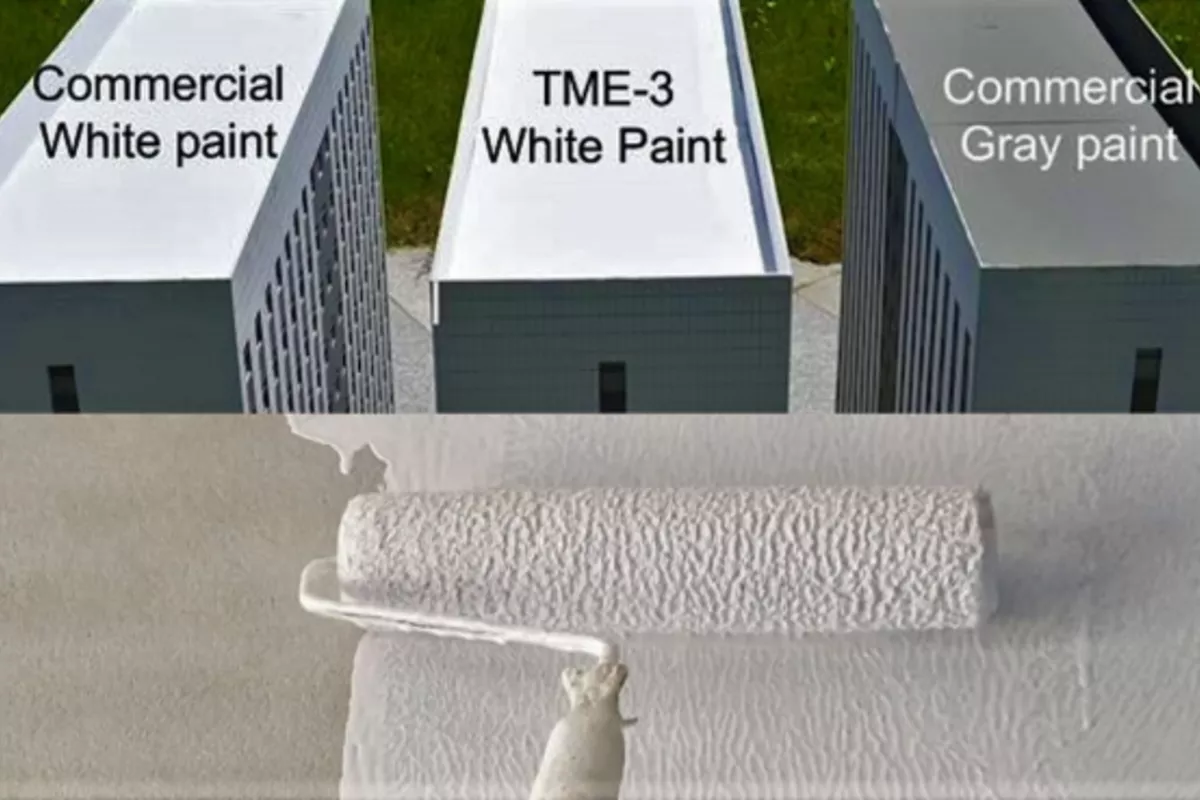
photo: Orient
An international team of engineers has pioneered a revolutionary roof coating developed with artificial intelligence (AI) that can cool buildings by up to 20 degrees Celsius more than traditional paints.
This cutting-edge technology could significantly reduce electricity consumption for air conditioning, lower carbon emissions, and offer vital relief to countries with hot, arid climates such as Turkmenistan, The Caspian Post reports via Turkmen media.
The breakthrough research was conducted by scientists from the University of Texas at Austin (US), National University of Singapore, Shanghai Jiao Tong University (China), and Umeå University (Sweden). Their focus was on creating “three-dimensional thermal meta-emitters”-innovative materials that selectively emit heat at different wavelengths, greatly enhancing energy efficiency.
“Our machine learning framework automates material design, enabling us to achieve superior properties previously unimaginable,” said Professor Youbin Zheng, a lead researcher on the project.
Testing on a model house demonstrated that roofs coated with these meta-emitters remained 5 to 20 degrees Celsius cooler after four hours of midday sunlight compared to roofs painted with conventional white or gray paints.
Experts estimate that this cooling effect could save up to 15,800 kilowatt-hours of electricity annually in a multi-family residential building in hot climates-a substantial reduction compared to the roughly 1,500 kilowatt-hours used by a typical air conditioner each year.
The research team developed seven types of meta-emitters suitable for various applications, including:
Urban areas, where materials can reduce the urban heat island effect by reflecting sunlight and emitting heat efficiently;
Space technology, by regulating temperatures of spacecraft;
Everyday uses, such as integration into textiles for cooling clothing or coating vehicles to lower heat absorption.
Co-author Kan Yao emphasized that machine learning has accelerated and optimized the traditionally slow, trial-and-error process of developing such advanced materials.
For Turkmenistan, where summer temperatures often exceed 40°C and air conditioning demand is high, adopting this technology could improve living conditions, ease pressure on the electrical grid, and support sustainable development goals by cutting carbon emissions.
This pioneering work may also motivate Turkmen scientists to explore innovative solutions addressing the challenges posed by arid climates.
Share on social media